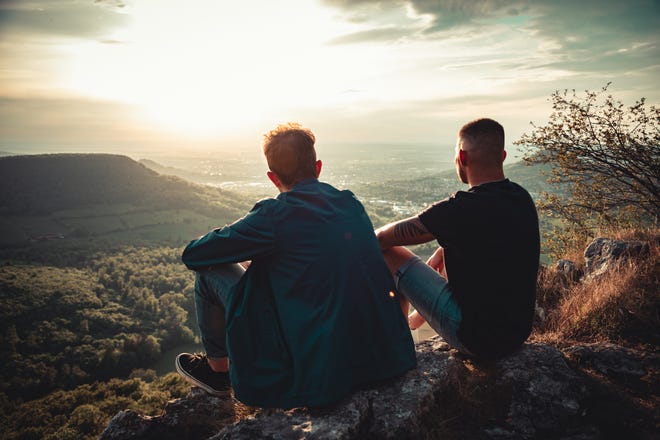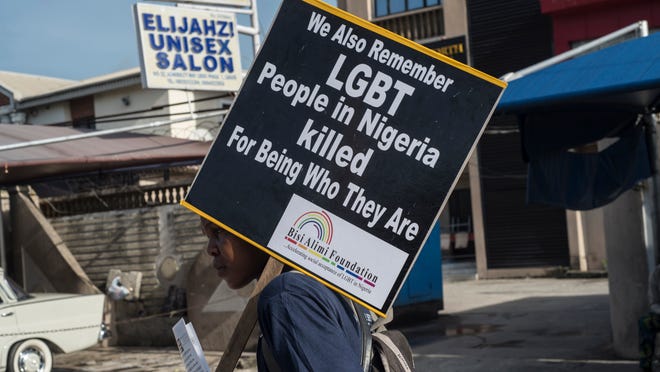As travel rebounds, and some international borders open to U.S. residents – especially, or exclusively, if you’re fully vaccinated – you’ll need to pack more than a suitcase to ensure safe trips during the pandemic’s latter days, and far beyond.
After all, it’s not quite a COVID-free world yet, nor will it be for a while. (And yes, I’m staring at those who traveled to dance parties and other superspreader events during the height of the pandemic.)
Since the world packs travel hazards besides COVID-19, from accidents to dangerous individuals and villainy targeting queer tourists, the National LGBT Media Association compiled some advice and resources for LGBTQ travelers to take into consideration. Bon (safe) voyage!
‘Travelers are ready to explore’:LGBTQ travelers leading the way to tourism recovery
Get insurance that covers COVID-19 (and yes, your spouse, too)
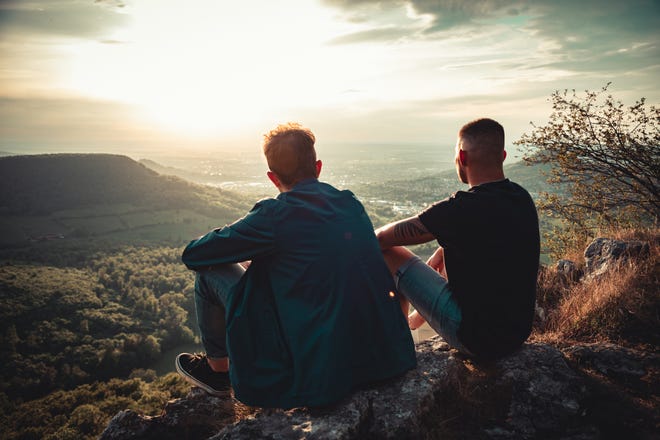
Before booking that flight, cruise, hotel or car rental, secure a travel insurance policy. Make sure it covers COVID-19 related calamities, including hospitalization and cancellations on either your end or that of the airline, cruise line, hotel, tour company, etc. – as many learned since March 2020, most policies did not cover everything.
For several years before the pandemic hit, I took out an annual individual policy with Allianz (they’ve added COVID-19 benefits to some policies), which I made one claim on during early 2019 for a doctor’s visit in Singapore. The claims process was easy and paid out in a timely manner – a simple urgent-care illness situation that included medication.
When my husband joined me in Bangkok for just a week, I purchased a single trip policy from Travel Guard for him (which does not appear to cover COVID-19, as of now). LGBTQ-friendly insurance company Seven Corners offers policies for both singles and same-sex couples, and can even ensure you stay together if a medical evacuation is required for one partner – check out the video about clients Daniel and Felipe on their LGBTQ landing page. Seven Corners also offers policies covering COVID-19.
Lastly, if you have homeowners insurance, inquire whether your personal property is covered against destruction or theft while traveling.
Geotag everything
Be sure to activate your phone, iPad and laptop’s geolocation features. Worst-case scenario, you know beyond a shadow of a doubt that your iPhone’s been stolen if it’s suddenly five miles away from where you last left it and can deactivate the device (also, though: Don’t leave your phone unattended).
I’ve learned it’s an all-too-common practice for airlines to take bags off planes pre-departure if the vessel’s too weight-heavy or may excessively tax its fuel supply. They won’t always confess yours lost the lottery and where it’s chilling, but Apple’s new tracking device, AirTag, could spill the tea.
Apple AirTag:Does it actually make life easier?
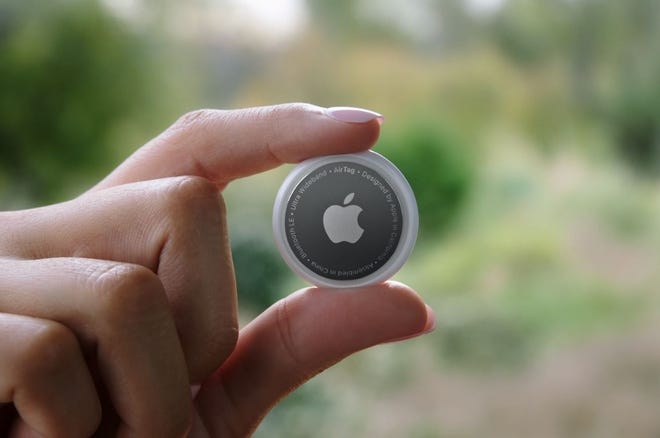
Know the LGBTQ+ laws of the land
Homosexuality is still illegal and even punishable by death in parts of the world. Some of these anti-LGBTQ laws entail toothless legislative holdovers, like Singapore’s Penal Code Section 377A, which remains on the books despite ongoing legal challenges and an open, even thriving local gay scene (and entertainers like “Drag Race Thailand” queen Vanda Miss Joaquim).
As of April, countries with the death penalty on the books for same-sex relations include Iran, Saudi Arabia, Afghanistan, Pakistan, Northwest Africa’s Mauritania, Nigeria, Somalia, Yemen and the United Arab Emirates.
Beyond the personal safety issue, there’s also the question of whether to spend money in places inhospitable to LGBTQ people, either socially or politically, like Arkansas, Jamaica or Poland.
I’ll admit, I like visiting Poland. But one night, casually taking photos in a Kraków gay bar, a young gay Pole lunged at me from across the room (he actually dove underneath a table, like a submarine missile, to make a straight beeline), asking why I was shooting in his direction, enraged. That was the last photo I took in a gay space. Alternately, to some, traveling to these places is a form of activism, while also supporting the local LGBTQ businesses and community.

Human Rights Watch maintains a series of online maps of countries with anti-LGBTQ and anti-gender expression laws. It also keeps track of places where there are age-of-consent disparities between same-sex and heterosexual couples. It’s worth a look. So is travel blog Asher & Lyric’s whopping 150-country list of best and worst countries for LGBTQ travel in 2021. Our own U.S. State Department boasts a fantastic resource page for LGBTI (lesbian, gay, bisexual, transgender and intersex) international travelers. There, you can find safety tips, how to reach U.S. embassies and consulates while abroad (“Consular officers will protect your privacy and will not make generalizations, assumptions, or pass judgment,” it promises) and a Transportation Security Administration information page for transgender passengers.
Google where you’re going before booking tickets
Googling your destination and “anti-gay” could produce up-to-the minute news developments that may inform your plans. A Molotov cocktail attack in a Laguna Beach, California, gay bar in mid 2020, for example, is a pretty clear “maybe not right now.”
Egypt has long been an LGBTQ travel fave, but in the past few years the country saw an increase of disturbing anti-gay and anti-trans violence, harassment and detainment by the police.
Similarly, Indonesia keeps seeing waves of political crackdowns on and vilification of LGBTQ people – including raids of Jakarta bathhouses and, just this past August, a private gay party – while Indonesia’s Aceh province is ruled by Sharia law and sees public lashings and life-destroying shamings.
Indonesia’s island of Bali, however, is extremely LGBTQ-friendly and not informed by hateful fundamentalism. Go there, henny!
Show respect and be smart about PDA
Life isn’t always a gay cruise or a strut down Santa Monica Boulevard.
In some cultures, PDA between people of any gender or sexual identity is completely frowned upon and offensive, so look that up and, even better, look around you once you arrive. Watch (nonchalantly, not in some creepy way) how locals behave before indulging in PDA (don’t be surprised to see men affectionately holding hands like “Sex and the City” girlfriends in Arab countries or India; it’s a cultural norm, despite the homophobia).
Conversely, if you’re in a known gayborhood like Tokyo’s Shinjuku Ni-chome or Mexico City’s Zona Rosa, live out loud and flash the gayest smile you can.
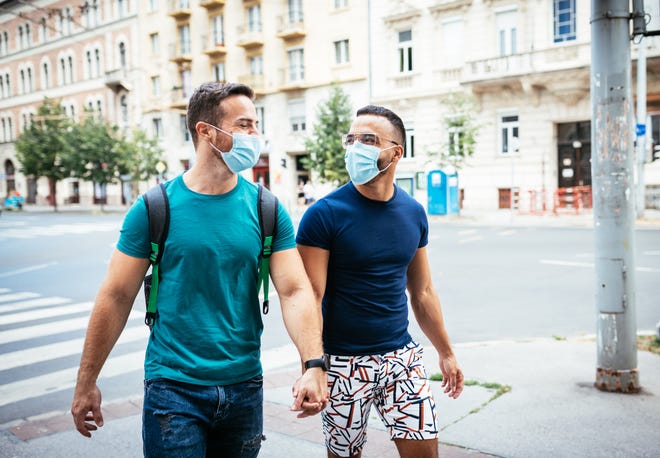
Back up critical documents on iCloud, Dropbox or Google Drive
I’ve never been pickpocketed (and probably jinxed myself writing that), but if this ever happens or you misplace important documents, a wallet, etc., have copies ready in the cloud, including booking numbers and, of course, travel insurance policy. iCloud, Dropbox, whatever – just make sure it’s an encrypted service. Now you can more easily request replacements and access important numbers to cancel credit cards.
If you’re legally married or partnered, have copies and cloud backups of your marriage license and anything related to power of attorney and medical access.
Don’t let your lube spill all over your suitcase like mine did
Ask me about the time the large bottle of Swiss Army silicone lube, which I had previously opened and used some of, burst inside my suitcase en route to Thailand, where I discovered that silicone lube isn’t even available (the good news: three cycles through the laundry and the stains were out of my shirts). Bring new, unopened bottles of your favorite lube(s), pack them in a couple of Ziplock bags and a large padded envelope, and make sure they – and any liquid for that matter – aren’t too tightly pressured by all your other stuff.
If you have preferred brands of condom, bring those, too. In some countries, condom brands and sizes can be very different from ones available in the U.S., notes Andrew Pugsley, a gay Tokyo-based Canadian expat whose excellent gay vlog Tokyo BTM is chock full of insider deets on the culture, city and queer nightlife.
Watch out for the catfish – and sharks
It can happen anywhere in the world, including home, but apps and hookup sites are swimming with scam artists. In some countries, apps are used by homophobes and zealous anti-gay police to entrap, jail and torture LGBTQ people. In other cases, you could get robbed, especially in developing countries where tourists represent an easy mark.
If you do meet someone online, take precautions. In countries where locals target tourists, five-star hotels will often require visitors leave their IDs at the front desk and won’t allow them to be retrieved until you give a sign-off by phone. If someone refuses to visit your five-star hotel, that’s a red flag. And if you do have a new “friend” over, put those valuables in the safe first.
Always keep medications on you
Don’t put your PrEP in check-in luggage. I repeat: Do not put your PrEP in check-in luggage. Ever. If it’s medication you need daily, you’re risking missed doses should that bag get lost if the drug isn’t readily available where you’re headed. Keep them in your carry-on only.
Also don’t bring recreational drugs. Tourists will not be treated with leniency. It’s a lesson you don’t want to learn.
New York-raised entertainment and travel journalist Lawrence Ferber has contributed to publications including Entertainment Weekly, New York Magazine, National Geographic Traveler, The Advocate, NewNowNext, The NY Post and TripSavvy. He also co-wrote/co-created the 2010 gay romcom “BearCity” and authored its 2013 novelization.
The National LGBT Media Association is composed of the oldest and most established LGBTQ publications in the top U.S. markets.

